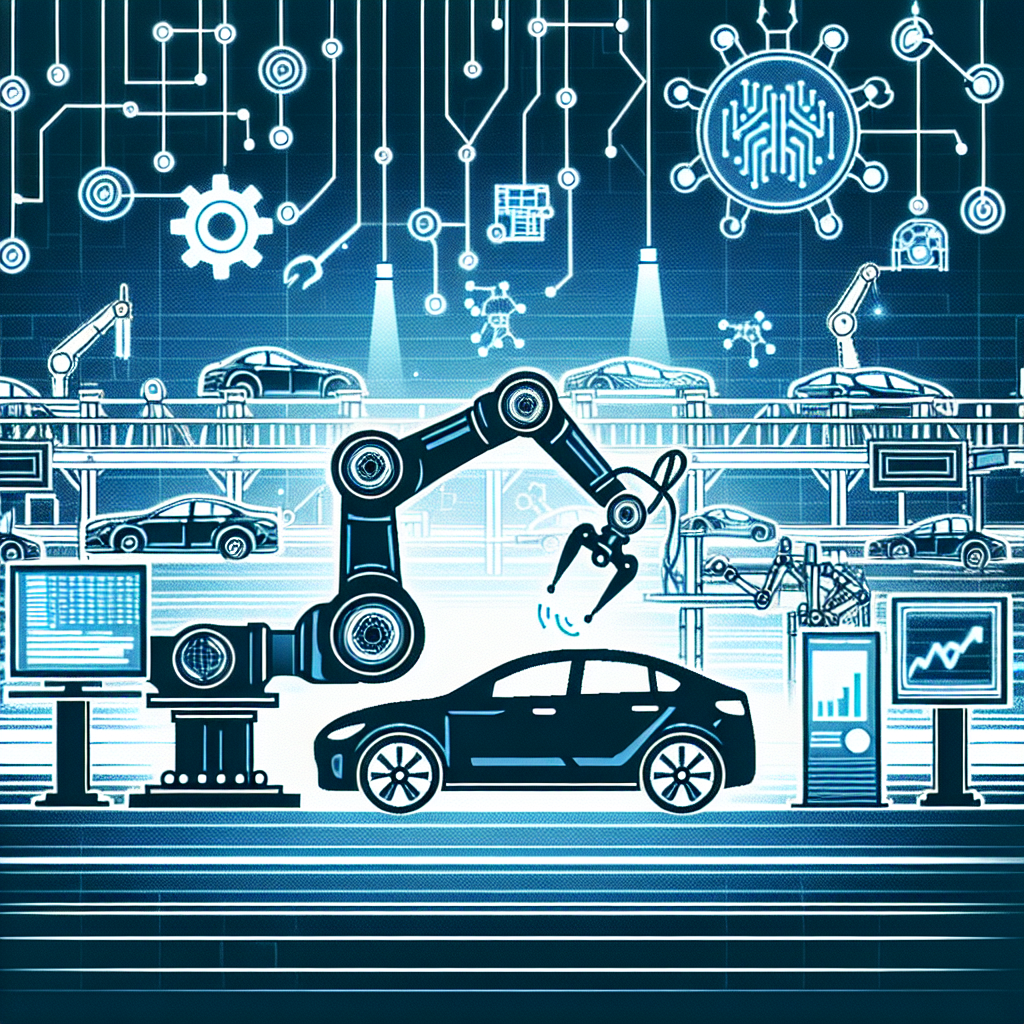The automotive industry is constantly evolving, with technological advancements driving innovation and efficiency. One area where these advancements are particularly impactful is in predictive maintenance for manufacturing equipment. By utilizing artificial intelligence (AI) automation in predictive maintenance processes, automotive manufacturers can benefit from increased efficiency, reduced downtime, and improved overall equipment effectiveness.
Predictive maintenance is a proactive approach to maintenance that uses data and analytics to predict when equipment is likely to fail so that maintenance can be performed before a breakdown occurs. This approach is in contrast to traditional maintenance practices, which are often reactive and can result in costly downtime and repairs.
AI automation plays a key role in predictive maintenance by enabling manufacturers to analyze large amounts of data quickly and accurately. By using machine learning algorithms, AI can identify patterns and trends in equipment performance that can indicate when maintenance is needed. This allows manufacturers to schedule maintenance more effectively, reducing the likelihood of unexpected breakdowns and minimizing downtime.
One of the key benefits of AI automation in predictive maintenance is increased efficiency. By automating the analysis of equipment data, manufacturers can quickly identify potential issues and take action before they escalate. This can help to prevent costly downtime and repairs, as well as improve overall equipment effectiveness. In addition, AI automation can help manufacturers to prioritize maintenance tasks based on the criticality of the equipment, ensuring that resources are allocated effectively.
Another benefit of AI automation in predictive maintenance is improved safety. By identifying potential issues before they become serious problems, manufacturers can reduce the risk of accidents and injuries in the workplace. This can help to create a safer working environment for employees and reduce the likelihood of costly legal and insurance claims.
AI automation also offers manufacturers the opportunity to optimize their maintenance schedules and procedures. By analyzing historical data and equipment performance trends, AI can help manufacturers to identify the most effective maintenance strategies for their equipment. This can help to extend the life of equipment, reduce maintenance costs, and improve overall equipment reliability.
In addition to these benefits, AI automation in predictive maintenance can also help manufacturers to reduce their environmental impact. By optimizing maintenance schedules and procedures, manufacturers can minimize the use of resources such as energy, water, and raw materials. This can help to reduce waste and pollution, as well as lower operating costs.
Overall, the benefits of AI automation in predictive maintenance for manufacturing equipment in the automotive industry are significant. By using AI to analyze data and predict equipment failures, manufacturers can increase efficiency, reduce downtime, improve safety, optimize maintenance schedules, and reduce their environmental impact. This can help to drive innovation and competitiveness in the automotive industry, as well as improve the overall performance of manufacturing equipment.
FAQs:
Q: How does AI automation in predictive maintenance work?
A: AI automation in predictive maintenance works by using machine learning algorithms to analyze large amounts of data from equipment sensors and other sources. By identifying patterns and trends in the data, AI can predict when equipment is likely to fail and recommend maintenance actions to prevent breakdowns.
Q: What are the key benefits of AI automation in predictive maintenance for manufacturing equipment in the automotive industry?
A: The key benefits of AI automation in predictive maintenance include increased efficiency, reduced downtime, improved safety, optimized maintenance schedules, and reduced environmental impact. These benefits can help manufacturers to improve overall equipment effectiveness and competitiveness in the automotive industry.
Q: How can manufacturers implement AI automation in predictive maintenance?
A: Manufacturers can implement AI automation in predictive maintenance by investing in AI technology, collecting and analyzing data from equipment sensors, and integrating AI algorithms into their maintenance processes. By working with AI experts and technology providers, manufacturers can develop customized solutions that meet their specific needs and objectives.
Q: What are some examples of AI automation in predictive maintenance in the automotive industry?
A: Some examples of AI automation in predictive maintenance in the automotive industry include using AI algorithms to analyze data from vehicle sensors to predict when maintenance is needed, using AI to optimize maintenance schedules and procedures, and using AI to prioritize maintenance tasks based on the criticality of equipment.
Q: What are the potential challenges of implementing AI automation in predictive maintenance?
A: Some potential challenges of implementing AI automation in predictive maintenance include the cost of AI technology, the complexity of analyzing large amounts of data, the need for specialized skills and expertise, and concerns about data privacy and security. However, by working with experienced AI providers and developing a clear implementation strategy, manufacturers can overcome these challenges and realize the benefits of AI automation in predictive maintenance.

